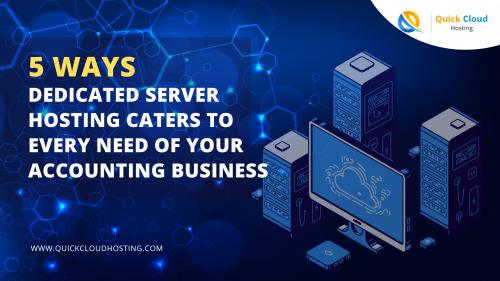5 ways auditing is changed for accountants in a post covid world.
The COVID-19 pandemic has forced many CPAs to adapt to remote auditing, which presents both challenges and opportunities. Prior to the pandemic, auditors would primarily conduct their work in person, but the shift to virtual work has been difficult for many in the profession. Remote auditing requires a different set of skills, and CPAs must be willing to learn new ways of working like QuickBooks premier hosting in order to be successful. The good news is that the demand for remote auditing is likely to continue even after the pandemic ends, so those who are able to adapt will be well-positioned for the future.
Auditors have had to make a lot of adjustments in how they do their work recently, but we've been ready for this day for a while now. They have been shifting to a more virtual model and have been working on perfecting their remote auditing skills. And now that businesses worldwide have had to make the same shift, they are ahead of the game. They are likely to continue doing most of their work remotely in the future, so they are prepared for whatever comes next.
Auditing in a pre covid world
The audit process has changed significantly since the pandemic began. Many of the procedures that auditors used to complete in person, such as observing physical inventory counts, are now done remotely. During traditional auditing times, auditors would be stationed at their client’s site, working together as a team to complete the audit on a timely basis. However, now that so many people are working from home, they have had to adapt their methods to fit this new normal. They still work as a team, but we do it all remotely, which can be challenging at times.
Auditing after Covid 19
When the pandemic hit, the auditing profession was forced to rapidly transition to full remote work. This change modernized the profession, as many tasks that were traditionally completed in person were now done virtually. Technologies played a big role in this transition, with video conferencing, cameras, drones and secure file-sharing platforms being used more than ever before. With the help of cloud based tools like QuickBooks premier cloud hosting, the industry was able to develop protocols to conduct audits remotely
Suddenly, many of the tasks that were traditionally completed in person now took place virtually. This was a major shift for the auditing profession, and one that would not have been possible without the use of technology.
Processes that changed with this transition are:
Inventory
The accounting industry's regulators have made some significant changes in recent years, chief among them being more flexibility when it comes to the timing of a physical inventory count observation. So long as a client maintains a perpetual inventory system, an auditor may be able to attend the count remotely via QuickBooks premier cloud hosting. This is a huge shift that allows for greater efficiency and cost-savings on the part of both audit firms and their clients.
Collection of Documents
Most of the documents that auditor requests are available electronically, but they have traditionally come in paper form. This includes bank statements, confirmations from customers, vendors, and attorneys. In a remote work environment, the auditor needs to request that these documents be delivered electronically so that they can have direct access to them.
Observation procedure
In order to ensure accuracy and validity, some standards, like internal control processes, require the auditor to observe a process or procedure as its being performed. However, in a remote environment, this isn't possible. Instead, the auditor will verify live, real-time video footage of the event.
Interview methods
In order to improve communication and conduct interviews effectively, many audit teams have now shifted from in-person interactions to virtual video conferencing, especially in the light of the pandemic. Pre-pandemic, most of these discussions were done face-to-face. However, virtual video conferencing allows for a wider range of people to be interviewed as well as being more time and cost effective.
Risk Assessments
The auditor's role has changed significantly since the outbreak of COVID-19. An auditor must now take into account how the virus has impacted their clients' business operations when it comes to things like access to capital, liquidity and their overall financial standing. It's not enough to simply assess their financial documents anymore - auditors must be aware of the current climate and how it affects their clientele in order to provide an accurate picture of their business.
Conclusion
This also means that their clients don't have to be located close to their physical locations - they could be based anywhere in the world. QuickBooks premier cloud hosting eliminates geographic constraints, which broadens their potential customer base.
Technology has played a big role in the way audits are conducted since the pandemic started. The integration of technology into the audit process was not a short-term solution; it created a permanent shift in the way audits are conducted. The new audit process has created efficiencies, enabling long-term flexibility for auditing teams. They are spending less time commuting, less time in meetings and less time at client sites. This ultimately saves the organization time and expenditures, especially when the client sites are in remote areas.







Comments (1)
Jannatul Suvarna
3
Professional Photo Editor
Hello!
Hope you are well.
We Offer Web Design & Web Development Service with amazing Low price including 100% Satisfaction Guaranty.
Myself Jannatul Suvarna from the company SEO Expate Bangladesh Ltd. We are basically a Web Design & Web Development providing company based in Bangladesh.
SEO Expate Bangladesh Ltd seo, article writing and web development service company different types of services to customers. Please contact us: info@seoexpartebd.com
Best Regards,
Jannatul Suvarna
Marketing Sp